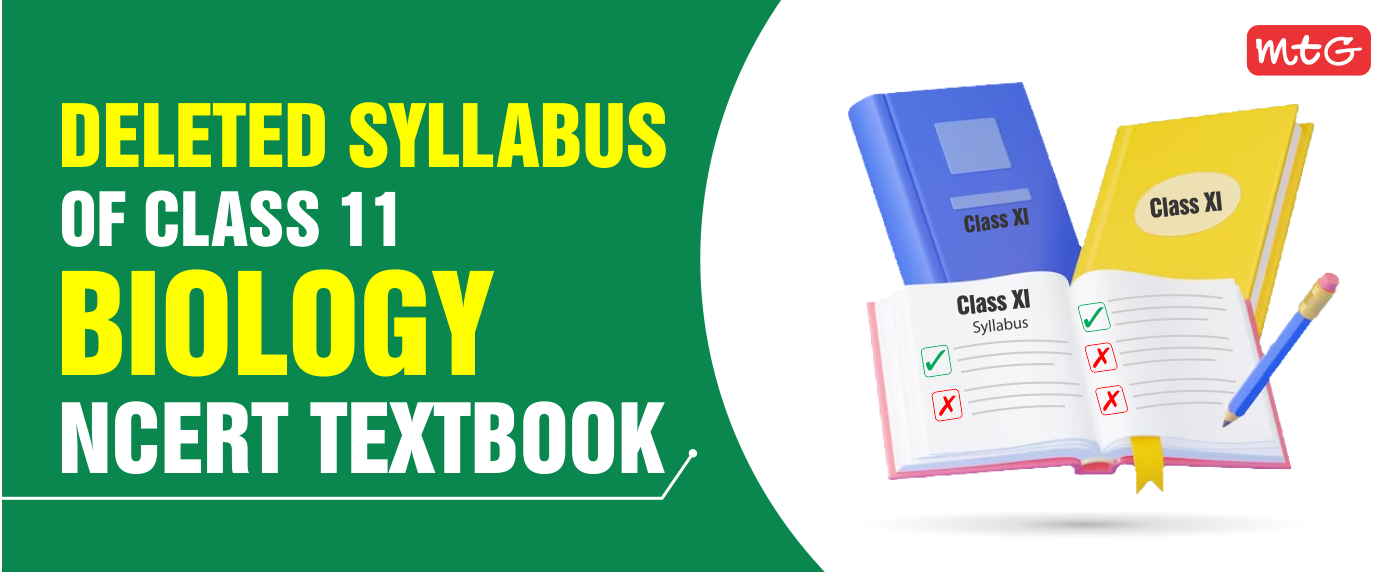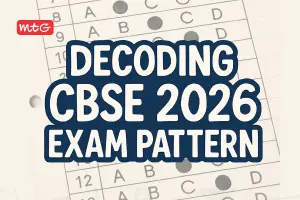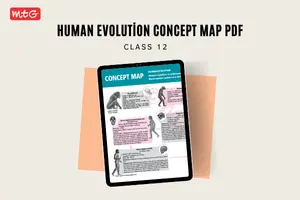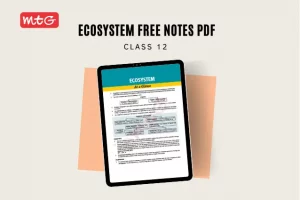
In accordance with the National Education Policy (NEP) in 2020, NCERT has made some significant changes to the biology textbooks to provide a more contemporary and engaging learning experience for students. NEP 2020 states that “the reduction in the content will help in increased flexibility of school curriculum and the renewed emphasis on constructive rather than rote learning.” The new curriculum is reduced to ease the workload of the students and make for experiential learning. Source – NEP Final
The NCERT Biology textbooks will be available in at least 22 languages, mentioned in the eighth schedule of the Constitution, including Hindi, English, Bengali, Assamese, Gujarati, Kannada, Sanskrit, Punjabi, Sindhi, Manipuri, Urdu, Malayalam, Odiya, and Kashmiri, among others.
Check out – Deleted Syllabus of Class 11 (2023-24) From NCERT Textbooks
Topics Removed from the Revised Textbooks
About 30% of the content in the NCERT Biology textbook is likely to be rationalized in the wake of the NEP 2020 policy. MTG has always been at the forefront of providing quality educational resources to students across the country. We always stay up-to-date with the latest trends and policies in education to provide the best content that is in line with the current curriculum with our reference books for class 11. We are quick to adapt in regards to the latest revision of the NCERT Biology textbook and will soon include changes consistent with the NCERT. The following table contains information about contents that have been deducted from NCERT Biology for class 11 for the session 2024-2025.
| Class-11 NCERT Chapter | Dropped Biology Topics/Chapters |
|---|---|
| Chapter 1: The Living World | 1.1 What is ‘Living’?; 1.4 Taxonomical Aids; 1.4.2 Botanical Gardens; 1.4.3 Museum; 1.4.4 Zoological Parks; Summary (Para 2) ; Question no. 10 |
| Chapter 3: Plant Kingdom | 3.5 Angiosperms; 3.6 Plant Life Cycles and Alternation of Generations; Summary (Para 5 and 6); Question no. 10 |
| Chapter 5: Morphology of Flowering Plants | 5.1.2 Modifications of Root; 5.2.1 Modifications of Stem; 5.3.4 Modifications of Leaves; 5.9.1 Fabaceae; 5.9.3 Liliaceae Question no.s 1, 2, 6 (b), 8, 9, 12, 14 |
| Chapter 6: Anatomy of Flowering Plants | 6.1 The Tissues; 6.1.1 Meristematic Tissues; 6.1.2.1 Simple Tissues (Para 2, 3); 6.1.2.2 Complex Tissues (Para 4); 6.4 Secondary Growth; 6.4.1 Vascular Cambium; 6.4.1.2 Activity of the Cambial Ring; 6.4.1.3 Spring Wood and Autumn Wood; 6.4.1.4 Heartwood and Sapwood; 6.4.2 Cork Cambium; 6.4.3 Secondary Growth in Roots; Question no.s 1, 2, 3, 7, 11 |
| Chapter 7: Structural Organisation in Animals | 7.1 Animal Tissues; 7.1.1 Epithelial Tissue; 7.1.2 Connective Tissue; 7.1.3 Muscle Tissue; 7.1.4 Neural Tissue; 7.3 Earthworm; 7.3.1 Morphology; 7.3.2 Anatomy; 7.4 Cockroach; 7.4.1 Morphology; 7.4.2 Anatomy; Summary (Para 2, 3, 4); Question no.s 1, 2, 3, 4, 5, 6, 7, 8, 9, 10, 11, 12, 14 (c) |
| Chapter 9: Biomolecules | 9.8 Nature of Bond Linking Monomers in a Polymer; 9.9 Dynamic State of Body Constituents—Concept of Metabolism; 9.10 Metabolic Basis for Living; 9.11 The Living State; Question no.s 2, 3, 5, 8, 10 |
| Chapter 11: Transport in Plants | Full Chapter |
| Chapter 12: Mineral Nutrition | Full Chapter |
| Chapter 15: Plant Growth and Development | 15.5 Photoperiodism; 15.6 Vernalisation; 15.7 Seed Dormancy; Question no.s 3, 5, 8, 10 |
| Chapter 16: Digestion and Absorption | Full Chapter |
| Chapter 21: Neural Control and Coordination | 21.5 Reflex Action and Reflex Arc; 21.6 Sensory Reception and Processing; 21.6.1 Eye; 21.6.1.1 Parts of an Eye; 21.6.1.2 Mechanism of Vision; 21.6.2 The Ear; 21.6.2.1 Mechanism of Hearing; Summary (para 3 and 4) Question no.s 1 (b, c), 2 (c), 4 (c, d), 5 (e, f, g, h), 6 (b, c), 7, 8 (b, c), 9 (c), 10 (a), 11, 12 (c, d) |
| Answers | In accordance with the reduction in Exercises in text. |
What is the basis of Content Rationalisation?
According to Union Minister of State for Education Annapurna Devi, “Overlapping with similar content included in other subject areas in the same class; similar content included in the lower or higher class in the same subject; difficulty level; content, which is easily accessible to children and does not require much intervention from the teachers and can be learned through self-learning or peer learning; content, which is not relevant in the present context or outdated and taking care of the learning outcomes already developed across the classes, are among the criteria adopted for rationalization of the content load.” Source – NCERT textbooks rationalised to compensate for Covid-19 time loss: Education ministry
Check – 11 Most Important Graphics of NCERT Class 12th Biology That You Cannot Miss
Also Check – Deleted Syllabus of Class 11 (2023-24) From NCERT Textbooks
MTG strives to offer a thorough understanding of numerous concepts, theories, and applications. To give you a comprehensive, up-to-date education, we ensure that we cover the most recent developments in the field with the use of case studies, real-world examples, etc.
Stay tuned for all the latest updates!
Buy yours now for Intensive Knowledge & 100% Learning in CBSE exams and attract topper-like scores now here – https://t.co/vD35gNqMHA#mtg #mtglearningmedia #mtgbooks #100percent #cbseboards #cbseexams #boardexams #boards #class10exams #class12exams #class10boards #class12boards pic.twitter.com/hiQnTqK94F
— MTG Books (@MTGBooks) December 2, 2022






























